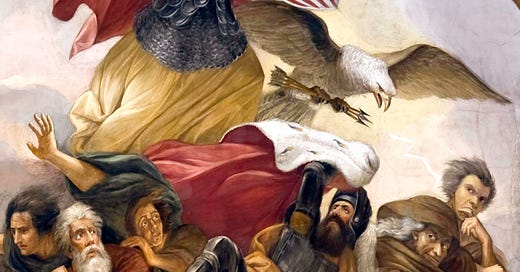Tomorrow is Labor Day, one of only 11 federally-recognized holidays (12, if we include Inauguration Day, celebrated every four years after a presidential election). As the Congressional Research Service points out, although these are “frequently called public or national holidays, these celebrations are only legally applicable to federal employees and t…
Keep reading with a 7-day free trial
Subscribe to PostModernConservative to keep reading this post and get 7 days of free access to the full post archives.




